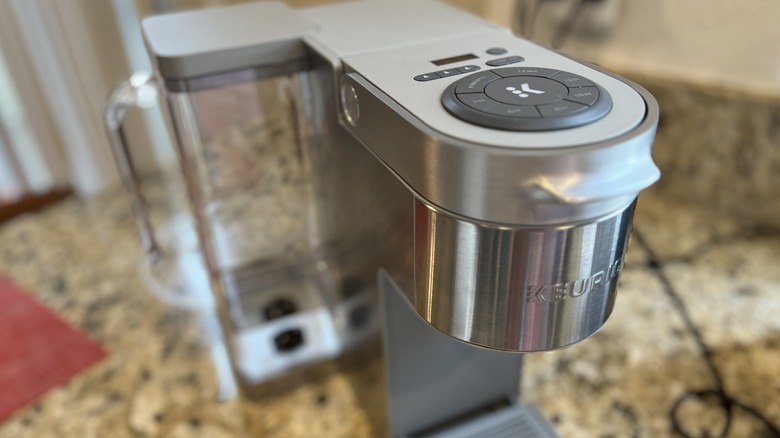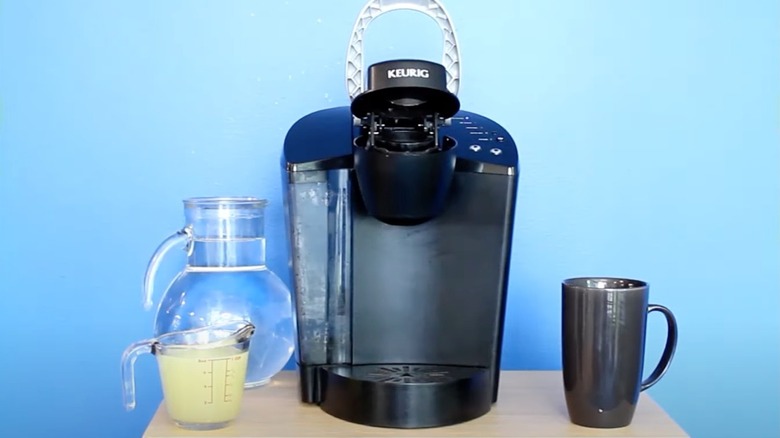How To Clean & Descale Your Keurig Without A Drop Of Vinegar
Does your morning cup of coffee have a bitter taste or an unusual smell? If your grounds aren't expired, it might be time to descale your Keurig. Nearly all types of coffee makers, but especially single-brew machines, require regular cleaning to keep them functioning properly. Vinegar is one of the most popular staples used to clean the interior of Keurigs, but this method comes with an off-putting smell that can linger long after. Instead, try using lemon juice as a way to descale your Keurig and make sure your cup of joe tastes great every time.
Cleaning one of these machines isn't just important for consistent taste; it's also the sanitary thing to do. Data from an NSF study showed coffee makers rank as one of the top 10 household germ hot spots. Descaling can help keep your machine ultra-clean by breaking down mineral buildup that could harbor bacteria.
If you want to hold off on vinegar for your Keurig and use lemon juice instead, here's why and how it works for descaling. The main reason lemon juice can lift scale lies in the fact that it contains citric acid, which is a reducing agent. Reducing agents like citric acid can loosen mineral deposits via a chemical interaction known as redox, whereby the citric acid loses electrons to the scale, which helps to make the buildup softer and more soluble. So when life gives you lemons — it might be time to descale the Keurig.
How to descale your Keurig with lemon juice
There are countless cleaning uses for lemons around the house and the process couldn't be easier when it comes to descaling without vinegar. However, the precise way to clean a Keurig can vary, as different models may have different recommendations for cleaning, so be sure to refer to the product manual for additional information. Generally, you'll want to remove any detachable pieces and hand wash them in warm, soapy water. Be sure to pay special attention to the puncture needles and drip trays. Next, fill the reservoir with an equal mixture of water and lemon juice. For example, if you have a 10-cup machine, you would add 5 cups of juice and 5 cups of water. This can take more lemons than one would assume. In fact, it requires over 10 lemons to produce 2 cups of juice! So be sure to pick up enough fruit to successfully complete this hack. Then, run the Keurig on a clean cycle, following up with a rinse cycle using clean water.
It's often recommended to use fresh lemons for cleaning, but bottled juice can also work. Pure lemon juice has around 1.44 grams of citric acid per ounce, while concentrated forms provide 1.10 grams per ounce. At these concentrations citric acid is generally a mild cleaner, but one that can still pack a good punch at refreshing Keurigs — taking the place of vinegar like a champ. Manufacturers recommend thoroughly cleaning and descaling units every three to six months or more frequently if the machine sees heavy use or hard water.

